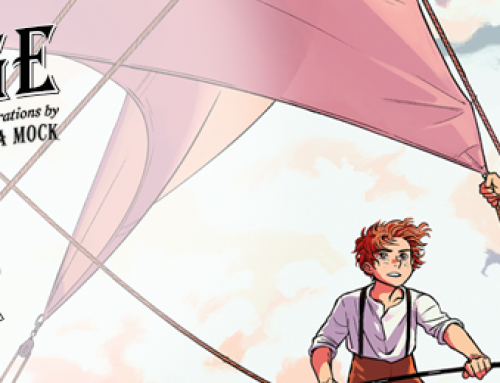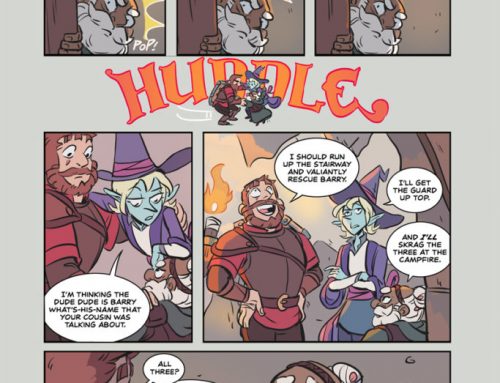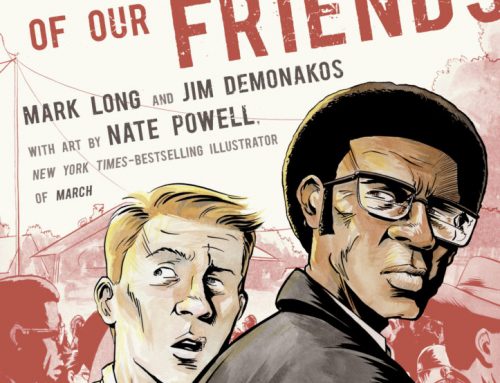test heading
“One
should fight like the devil the temptation to think well of editors.
They are all, without exception–at least some of the time–incompetent
or crazy… It is useful, in short, for young writers always to think
of editors as limited people … though if possible one should treat them politely.” – John Gardner, On Becoming a Novelist
“All editors are different, and even a very good editor isn’t a magic
bullet, because writing always comes down to you and your book.” – Hope Larson, Comics Comics
Someday I will indulge myself in the pleasure of writing a nice long post about the editorial process and what precisely what goes into it and how it works, exactly, but in the meantime, I wanted to thank Hope Larson for her lovely interview on Comics Comics about working with editors. If you haven’t read it, I do recommend it.
And of course, human vanity being what it is, I couldn’t resist adding a brief two cents to this discussion… So, a quick run-through, from a personal perspective, on what an editor is and is not.
What an editor is: Someone who provides a second pair of eyes for your work. Think of a good editor as a mildly reactive surface for your work to reflect off of so you can see it better. Both flaws and strengths in your writing that you have been too close to it to see may be a lot clearer to someone else.
What an editor is not: A mind-reader. Although someone with some experience and skill may be able to intuit a great deal about what you’re trying (whether you’re succeeding or not) to say in your story, it doesn’t always work out that way, especially not at first. I’ve found that the editorial process often involves a certain amount of groping around in the dark on the part of both editor and author.
What an editor is: a reader, talker, and listener. There are two modes I find I alternate between when I’m talking to an author about their work. First, mostly asking questions — the more open-ended the better — to get the author thinking and talking about the story, especially about what works and what doesn’t; what’s important and what isn’t. Second, I give my opinion, and offer my solutions. I usually start out with the one and then move to the second, but not always.
What an editor is not: the final authority on how you write and illustrate your book. As happy as I am in certain situations to say “Such-and-such isn’t working; it would be better if you did so-and-so,” that’s kind of the exception to the rule. I’m always aware of my own blind-spots and shortcomings, and, as Hope says, “writing always comes down to you and your book.” My role is primarily that of a facilitator and asker-of-hard-questions, not “Boss.” By the way, this is a more pragmatic position than you might expect, given how high-minded it sounds! Think of it this way: my two primary goals as an editor are 1) a great final book, and 2) a happy author. Strongarming someone into adopting my brilliant idea isn’t going to get me either of these things.
What an editor is: someone who probably knows more about publishing, and the market for your book, than you do. Format constraints, cover design constraints, schedule constraints, content constraints — most authors have no reason to have thought about these issues much. I spend a good part of my day thinking about them. (Not the fun part, either, so count yourself lucky.)
What an editor is not: the final authority on publishing and the market for your book. I do know a certain amount about this stuff. But the best way I can represent a book’s best interests is by never assuming I know what’s definitively right or wrong for it before I’ve given it real thought… and heard the author out. You want a purple melamine cover for your book with an embossed illustration of human genitalia? Let’s talk. Chances are I’ll talk you out of it, but I’ll always hear what you have to say, first.
~ Thanks to First Second translator Hanvey Hsiung for the terrific quote from John Gardner
~ Your mileage may vary on all of this; I offer no universals or proscriptions. Or if I do, it’s probably wrong anyway.





“You want a purple melamine cover for your book with an embossed illustration of human genitalia? ”
So that’s what sells these days?
Great post by the way!
From personal experience, I know you hold to these points and they aren’t just words. :)
Superb post – another example of what makes :01 so great
Very well said and oh so true.
Wahoolazuma!
Larry Marder